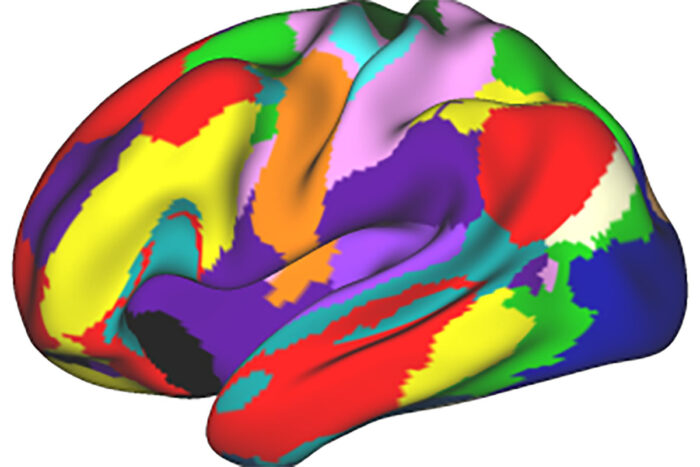$13.7 million to further adolescent brain development study
Grant from National Institute on Drug Abuse to extend landmark study
 Scott Marek
Scott MarekWashington University scientists are using advanced brain imaging techniques, structured interviews and behavioral testing to tease out how life experiences, along with a child’s changing biology, affect brain development. The image shows the functional organization of a 9- to 10-year old brain, averaged across more than 1,100 individuals. Each color represents a distinct set of brain areas.
Washington University scientists will receive $13.7 million in additional funding for ongoing research into adolescent brain development. Their work is part of the largest long-term study of brain development ever conducted in the United States.
Washington University is one of 21 study sites around the country participating in the project. Launched in 2015, the Adolescent Brain Cognitive Development (ABCD) study is following nearly 12,000 children, including over 2,000 who are twins or triplets. Researchers at the St. Louis site are gathering data from 215 pairs of twins and more than 270 additional children. The children began participating in the study at ages 9 or 10 and are being followed for at least 10 years.
The lead investigators in St. Louis are Pamela A.F. Madden, PhD, a professor of psychiatry; joined by Deanna M. Barch, PhD, chair of Washington University’s Department of Psychological & Brain Sciences in Arts & Sciences and the Gregory B. Couch Professor of Psychiatry at the School of Medicine; and Andrew Heath, DPhil, the Spencer T. Olin Professor of Psychiatry.
Adolescence features enormous physical, emotional and intellectual changes. Study scientists are using advanced brain imaging techniques, structured interviews and behavioral testing to tease out how life experiences, along with a child’s changing biology, affect brain development.
The study participants have begun or are close to beginning high school. The researchers expect the upcoming phase of the study will help them to better understand the effects of substance use, as well as environmental, genetic and other biological factors that influence the developing adolescent brain.
Study scientists are documenting exposures to drugs — such as nicotine, alcohol and marijuana — screen time activities, sleep patterns, participation in sports and arts, and other variables that may affect brain development, cognitive skills, mental health and other outcomes.
Although the project is designed to answer long-held questions about the development of the teenage brain through adolescence and beyond, the study already has produced dozens of research papers and other data, allowing researchers to address numerous questions that ultimately may inform health decisions and policies related to education, nutrition, physical activity, sleep and prevention of substance abuse and mental illness.







